|
I remember the first time I experienced Eucharistic Adoration. During my first week of college, I was walking back to my residence hall after grabbing dinner with some friends of mine. As we walked back into our dorm, one smiling upperclassmen was talking to some other freshman in the lobby. He saw us and made a beeline. I was only five steps away from the elevator, maybe he wouldn’t catch me. Alas, the elevator did not come in time and we ended up chatting with this friendly upperclassman. As he introduced himself, he also invited us to praise and worship Adoration that night. He promised us there would be a ton of good food afterwards. Though there were posters about this event throughout the dorm and we knew about it, we did not previously plan on attending. However, after being personally invited, being called by our names, we decided to give it a try. It was one friendly person’s invitation (and yes, the promise of food) which forever changed my faith-life. After going to Adoration and the fellowship held immediately afterwards with friends, I was hooked. College students and young adults are in a unique place in their faith journey. Many are seeking answers to some pretty big life questions. As the Church, we have the joy of being called to reach out to these sometimes marginalized members of our community and invite them to experience the love of Christ. Yet, how do we do that? As a college student myself and someone who ministers to undergraduate students, I have found that there is one way in which your parish can successfully engage Catholic young adults and college students. All college students and young adults seek a place to belong. And what better place is there than the Church of Jesus Christ? The parish community can seek to provide different opportunities for college students and young adults attending the parish to get together for fellowship. Having faithful Catholic friends your age who provide you with support on your spiritual journey is indispensable. The Christian life is not individualistic in nature, but one marked by interdependence. Being a parish which hosts events that foster communion between young adults is a key way to keep young adults engaged in parish life. Some parishes successfully do this by hosting mini-Theology on Tap series at a local restaurant, or something as simple as hosting praise and worship Adoration followed by a meal. These are just two examples of how you can help young adults feel like they belong in your parish community and experience Christian fellowship with their peers. One principle tip is to host events which have a liturgical aspect (pray compline together or have a holy hour) and a fellowship aspect (do not underestimate the power of food!). Yet, you might be thinking, there are no college students or young adults currently active in my parish! Pope Francis might have some wisdom to share with us. During Pope Francis’ journey to Brazil for World Youth Day in 2013, he told an assembly of bishops that "we cannot keep ourselves shut up in parishes, in our communities, when so many people are waiting for the Gospel.” Each baptized member of the parish community has a responsibility to be hospitable and welcoming. Each member of the parish community must be marked by their missionary zeal. Evangelization is not simply the job of the parish staff, but the calling and the joy of each Christian. Hence, it is your calling, not somebody else’s, to reach out to inactive college students or young adults and invite them back to the parish so that they can experience the love of Jesus Christ. This involves each person in the parish calling students by name. It was that simple invitation which brought me into regularly participating in the life of the Church. This responsibility, this call of each Christian to invite students and young adults by name, also becomes one of the greatest joys.
0 Comments
Born in 1873 as Marie-Francoise-Thérèse Martin, St. Thérèse of Lisieux was a Carmelite nun with an intense devotion to Christ. She had a simple yet profound understanding of her faith and her relationship with Christ. She provided examples to us of how to be Christ-like to those in our lives through prayer and acts of charity. St. Thérèse died at only 24 years old of tuberculosis, but lived an immense life of faith.
In his homily at the Mass where she was declared a Doctor of the Church in 1997, now-Saint John Paul II talked about the way in which Thérèse lived: “She counters a rational culture, so often overcome by practical materialism, with the disarming simplicity of the ‘little way’ which, by returning to the essentials, leads to the secret of all life: the Divine Love that surrounds and penetrates every human venture.” Her example of living your life of faith by practicing little deeds has inspired many Catholics because it is an easy concept to grasp. We are all capable of doing something small to show our love to those around us. In his recent visit to the United States, Pope Francis talked about the importance of doing small acts of faith. “Faith opens a ‘window’ to the presence and working of the Spirit. It shows us that, like happiness, holiness is always tied to little gestures. ‘Whoever gives you a cup of water in my name will not go unrewarded’, says Jesus (cf. Mk 9:41). These little gestures are those we learn at home, in the family; they get lost amid all the other things we do, yet they do make each day different. They are the quiet things done by mothers and grandmothers, by fathers and grandfathers, by children. They are little signs of tenderness, affection and compassion. Like the warm supper we look forward to at night, the early lunch awaiting someone who gets up early to go to work. Homely gestures. Like a blessing before we go to bed, or a hug after we return from a hard day’s work. Love is shown by little things, by attention to small daily signs which make us feel at home.” The parish in which I grew up is now known as the National Shrine of the Little Flower Basilica in Royal Oak, MI. Made famous by the “Radio Priest,” Rev. Charles Coughlin in the 1930s, the building itself became a place of comfort and welcoming for me while in my youth, and the patroness, St. Thérèse, an example and spiritual guide. As a student in the parish school, I felt a sense of connection with young Thérèse. She made being a saint and apostle of Christ accessible to me in a way that is much more profound in hindsight. Because she was so young and the fact that the Church made such a huge deal about her, through her canonization and being made a Doctor of the Church, was inspiring to me as a child. Maybe I had the ability to follow in her footsteps. Maybe I could live a life worthy of sainthood, even though I was only a kid. St. Thérèse herself says, “Miss no single opportunity of making some small sacrifice, here by a smiling look, there by a kindly word; always doing the smallest right and doing it all for love.” (From No Greater Love by Mother Teresa) Her love of Christ and devotion to his Church provides all of us with a path for our lives. As Catholics, we do not need to do great things to show others the face of God. Rather, we need to do what we can and do that in the best way possible with the talents God has given us. For some, that may be serving the Church as a lector at Mass or discerning a religious vocation or something as simple as smiling at a stranger on your commute to work. To this day, I still follow St. Thérèse’s example of living out my faith in little ways. She continues to inspire me to live a life worthy of sainthood. Recently, I took the plunge into adulthood and joined a local parish. This was no easy task and was a long time coming. For the past year or so following my college graduation, I have been searching for a parish to call home by attending Mass a few times here and a few there throughout my city. Just when the “church hopping” seemed endless...I found it. I knew it was where I belonged from the smiling baby in front of me, the bright and spacious sanctuary, and the other young-adults and families in the surrounding pews. I had been searching for a long time, focusing on small things like location, time, music selection, and ambiance, but I realized it was the community I was searching for so desperately. At this parish, it all came together.
My new parish is full of people, from newborns to elderly choir members, from single twenty-somethings to couples celebrating 40 years together, and everyone in between! The people are kind and welcoming, something I had not found in every church I stepped into. In the other churches people didn’t sing, or the homilies didn’t make sense, or the vibe was off, or there were no screaming kids present, and none of that seemed quite right. Although many people go to the parish closest to them, we are not at all required to do this. I was searching for a parish that felt right to me, especially after going to college where community was the center of my life, I knew I needed a place where an atmosphere of joy was present and alive in its parishioners each time I worship there. To illustrate my point, the USCCB provides a perfect explanation of what a parish community is: "The parish is where the Church lives. Parishes are communities of faith, of action, and of hope. They are where the Gospel is proclaimed and celebrated, where believers are formed and sent to renew the earth. Parishes are the home of the Christian community; they are the heart of our Church. Parishes are the place where God's people meet Jesus in word and sacrament and come in touch with the source of the Church's life." --Communities of Salt and Light, p. 1 Now is the greatest time to become a parishioner. It is never too late to join a local parish, and it can be as easy as filling out an online application (like I did!). Here are three things that helped me throughout my search: 1. Bring someone. One way to not be nervous about going to a new church is to bring someone else with you like a friend or significant other. 2. Do your research. Look up all the information on that parish before you visit so that you understand a little bit more about the priests, rectors, and the size of the congregation. 3. Go early and explore. My favorite part about seeing a new church was when I got to walk around and see where everything was; everything from the beautiful stained glass and statues to the bathrooms and church hall. Not long ago, I yearned for a welcoming, warm, friendly, vibrant, energetic parish that could be my new faith-filled community. Taking this leap into adulthood closed a chapter from my formative college years and began a new chapter in continuing my faith journey. So, whether it is Marriage, Baptism, Confirmation, Easter, Ordinary Time, or Advent, I know my heart will be open to listening for God’s message of love in a place I can call my home parish. Krissy Kirby is a teacher for the Archdiocese of Washington, D.C. As a catechetical leader in a parish, this is my first experience being involved in a Rite of Christian Initiation for Adults (RCIA) program. I am a cradle Catholic, born and raised in the Church, and have had no personal acquaintances go through the RCIA. This year, I have participated on a leadership team to observe how the RCIA is done catechetically. Now that the Easter Vigil has passed and the candidates have been fully initiated into the life of the Church, they are moving into mystagogy, a time where they will process what they have just gone through.
During this time studying the mystery of Christ and his life within us, I cannot help but see how God has formed me this year. Cyril of Jerusalem wrote, “You who are soon to be enlightened, already you are gathering the spiritual flowers, to weave heavenly crowns” (Catechetical Lectures, Prologue, 1). St. Cyril recognized that those who are initiated into the Church learn of Christ’s life within them through initiation at Easter. The “mystery” that we study during mystagogy is not up to us to be solved or remain unsolved. Rather, it is a mystery that we can continue to grow into throughout our lives. I, a lifelong Catholic, a member of the RCIA team, and graduate student in Theology, am still trying—with the grace of God—to weave my heavenly crown alongside those who have just joined the Church. We can all continue to grow in the mystery of our life in Christ. Much of St. Cyril’s Catechetical Lectures to the neophytes have to do with turning away from sin, and choosing a heart of stone over a heart of flesh (Ezekiel 36:26). St. Cyril writes, “If any here is a slave of sin, let him promptly prepare himself through faith for the new birth into freedom and adoption” (Lecture 2). St. Cyril is not just addressing the newly baptized, but everyone in the congregation. Why should God forgive us who continue to sin? Why do we deserve such a freedom? How can we be adopted by God? What kind of love could overpower the sins I have committed? These are the mysteries that we reflect on in mystagogy. While candidates have a new-found life through baptism in Christ, we all renew our baptismal promises at Easter. We are all called to continue to reflect on the answers to those questions. My experience as a team member with the RCIA has showed me that in bringing others into the Mystery, Christ is also calling me back to remember the Mystery of God’s love in my own life. Easter provides us the time to remember and renew our baptismal promises. In that renewal, we can remember that mystagogy is not just for the newly initiated, but for everyone. We can all grow in knowledge of the Mystery of Christ that we experience in the church at Easter and in our everyday lives. Thomas Coast currently serves as an Apprentice Catechetical Leader in the Diocese of Manchester, New Hampshire. Editor's Note: This post was originally published on April 24, 2014 To celebrate the Catholic Apostolate Center passing 50,000 "likes" on Facebook, Communications and Social Media Intern Andrew Buonopane created a list of 50 Ways to Enjoy your Faith. This is the fourth post in a five-part series where we'll share the whole list. Check back on the first Tuesday of the month for another installment! #20- Celebrate the Easter Octave Did you know that as Catholics, we celebrate both the “season” of Easter (which lasts 50 days) as well as especially celebrating the Octave of Easter which concludes this Sunday on Divine Mercy Sunday. #19- Devotion to Our Lady of Sorrows During Holy Week, we truly saw our Blessed Mother in her role as Our Lady of Sorrows. We experienced with her Christ’s death. How do you think she felt watching her son suffer so greatly? #18- Consider Parish Ministry Getting more involved in your parish is a great way to enjoy your faith! See if there are needs your parish has that you might be able to fill! #17- Adoration Eucharistic Adoration is a way to experience Christ in the Eucharist outside of the Mass. See if your parish has Adoration and if you’ve never gone before…try it! #16- Understand the Liturgy Sometimes we can get into the habit of “going through the motions” at Mass. Next Sunday, pay special attention to the rituals and prayers of the Mass. Ask yourself why we say and do everything at Mass. Take some time to learn more about the liturgy! #15- Devotion to Guardian Angel “Angel of God, My Guardian Dear…” is a prayer you may have been taught as a child. But did you know there’s a lot more to Guardian Angels? Check out this blog post which talks more about them! #14- Practice Forgiveness Turning the other cheek isn’t easy to do sometimes. But practicing forgiveness is an important part of our faith lives. #13- Devotion to Thomas Aquinas St. Thomas Aquinas was one of the Church’s earliest scholars. Much of his work is still taught today in theology and philosophy classes. Have you ever read his arguments on the existence of God? If not, take some time to check it out! #12- Devotion to Teresa of Avila St. Teresa of Avila is a great saint to model in your daily life. Take a moment to learn more about her! #11- The Paschal Mystery: Last Supper to Resurrection The Paschal Mystery is what we just celebrated last week in the Triduum. We recall Christ’s death and Resurrection and the liturgies celebrated at the Triduum take us on this journey.
To read the previous installment in this series, click here: Part I | Part II | Part III Andrew Buonopane is the Communications and Social Media Intern at the Catholic Apostolate Center To celebrate the Catholic Apostolate Center passing 50,000 "likes" on Facebook, Communications and Social Media Intern Andrew Buonopane created a list of 50 Ways to Enjoy your Faith. This is the first post in a five-part series where we'll share the whole list. Check back on the first Tuesday of the month for another installment! #50 - Go to Confession The Sacrament of Confession is one that many Catholics do not celebrate regularly. Haven’t been in a while? Check your parish website and see when Confession is offered and give it a try again! Need a refresher on the ritual? Check out the Catholic Apostolate Center’s Lenten Resource Page for year-round resources on this important sacrament. #49- Remember to Laugh Laughing is not only emotionally beneficial, but also has health benefits as well! Take the time to find humor where you can! #48 - Learn to appreciate Silence In our busy lives, silence is often hard to come by. When you do have a quiet moment, take a second to appreciate it! #47 - Devotion to St. Therese of Lisieux, whose "little way" taught that holiness can be sought in ordinary, everyday life. Take some time to learn more about this incredible saint, whose feast day is celebrated on October 1st. She can teach us how to find holiness in our daily lives! #46 - Become more active in your Parish Next Sunday, check out your Church bulletin to see what is going on in your parish. See if there’s something you’d like to be more involved in! #45 - Serve the Poor Find a local meal program in your city and learn more about volunteering there. There are many programs and services that need time, talent, and treasure and offer many ways to serve those less fortunate. #44 - View and Reflect on Sacred Art Find an art museum or view a museum’s online collection to see many important works of art that depict sacred scenes. Or check out local art in parishes in your diocese! Many churches contain beautiful works of art such as stained glass windows. #43 - Own a Catechism …or view the new USCCB online Catechism here! The catechism is a great place to turn with questions about your faith or as a resource to learn more about what we as Catholics believe. #42 - Take a pilgrimage Pilgrimages can be to places near or far. In your own diocese, visit a parish or church you never have been before! Or research places such as the St. Jude Shrine, the Basilica of the National Shrine of the Immaculate Conception, or other places of pilgrimage farther away! #41- Devotion to St. Jude St. Jude is a wonderful Saint to pray to when you don’t know where else to turn. He’s the patron saint of hopeless causes and many people find peace in praying to him. #40 - Find a Bible Study See if your parish has a bible study and get involved! Studying sacred scripture is an important way to deepen your faith.
Andrew Buonopane is the Communications & Social Media Intern for the Catholic Apostolate Center “God became man so that man might become God” ~St. Augustine, Sermo 13 de Tempore
I recently went to a Christmas open house at the home of my housemate’s parishioners. Like most events during our two years of service, heads turn when they see a group of four twenty-something year-olds enter the room where the median age is 60+. The questions start flying: “Who are you?” “Why are you here?” “You go to Notre Dame- did you watch the last game?” “Are you single?” “Have you met my grandson?” The one that always gets me is some form of, “…wait, you’re 23 and you want to be a practicing Catholic?” Many times, not wanting to get too deep too fast, I simply shrug and say “Yeah, I must be crazy but I love our faith.” This time, maybe due to the Christmas spirit in the air, I could not contain myself and I blurted out- “THE INCARNATION!” As the woman stared at me and my housemates continued the conversation, I was left thinking; how could someone not want to be Catholic when we have the doctrine of the Incarnation? How could I ever leave a faith where I am deeply loved, completely known, and have the ability to not only know God but bring about His Kingdom in the here and now? In just a few days at Christmas Mass we will hear the Word proclaimed and we will hear that this Word became flesh in the form of a babe. It is tempting for us to sit at Mass thinking of all the things we have going on that day: the food to cook, the family to visit, the last minute gift to buy for the cousin we forgot about. Yet, at Christmas Mass we are told of a most unique reality, that God became human! This is RADICAL. No faith outside of Christianity professes that God took on human form out of love to unite himself with his creation. The Pastoral Constitution on the Church in the Modern World writes that “by his incarnation the Son of God has united himself in some fashion with every human. He worked with human hands, he thought with a human mind, acted by a human choice, and loved with a human heart. Born of the Virgin Mary, he has truly been made one of us, like us in all things except sin” (Gaudium et spes §22) ‘ Because of the Incarnation, Christ knows us completely. He knows our pain, he knows how we feel, and he knows what it is like to endure the daily realities of being human. But the Incarnation goes beyond even this great gift. God, in becoming human, transforms human tasks that simply get us from point “A” to point “B,” to tasks that are doing the will of God and making God manifest. As St. Augustine puts it, "God became man so that man might become God". REJOICE this Christmas season for we are given the news that we can become God! In the humble birth of a babe, the Word became flesh and our lives were transformed! Live with the knowledge that you are deeply loved and act in such a way that God is made present- this is challenge the Incarnation gives to us. Let us accept this challenge and live our Catholic identity with great JOY knowing the truths that the doctrine of the Incarnation makes possible. Pam Tremblay is the Blog Editor for the Catholic Apostolate Center. As a young adult active in the life of my parish and diocese, I am often asked why I “do what I do.” The even better question I am frequently (but usually jokingly) asked is, “What is wrong with you?!” These questions are typically posed by the “church ladies” that will often comment on my bright red hair and then go on to lament the fact that their children or grandchildren do not attend Mass on Sundays.
I find these conversations to be great times for evangelization, and I try to respond with a question of my own: “When was the last time you asked them to come with you?” A blank face usually stares back at me. As Catholics, inviting someone to go to Mass with them is often a foreign concept. For many of us (myself included), faith is a very personal thing, and the thought of wearing it on our sleeves is not necessarily the most comfortable. Perhaps the Season of Advent that we will begin on Sunday is the perfect opportunity to invite a friend, family member, or neighbor back to the practice of their faith. As we wrestle between the Season of Advent and the secular Christmas season, it might be helpful to view our lives as Christians as a perpetual Advent, as a constant rebirth. The Advent that we seek is something new, something filled with the grace of rejuvenation through the working of the Holy Spirit. The mission of baptized Christians is to believe, practice, and teach the truths of the faith. Responding to this call in a responsible and proactive way is often the problematic or challenging part to living out the task of evangelization. The picture of faith that we often paint for ourselves is frequently an illusion of what we desire out of our own human weakness. If faith lacks substance, Pope Benedict XVI has said that our individual faith “will not be big enough to cope with reality.” If we believe that a sign will fall from the heavens with the answers to our questions of faith, then we are missing the signs that God provides for us each and every day. In its authenticity, true faith should be given out of love for God and with the confidence that God does not need our praise and thanksgiving. Although we trust in a God that we cannot see, we believe in the Advent of a renewing and fulfilling redeemer whose Church should be compelled to evangelize and spread the message of salvation. My challenge to you as we begin this Season of Advent is this: Invite someone to go to Mass with you. Smile. Listen to some Christmas music. Put some pocket change in the bell ringer’s bucket for charity. “Prepare the way of the Lord” (Mk 1:3) and “be vigilant at all times” (Lk 21:36). A blessed Advent to you and yours! Grant your faithful, we pray, almighty God, the resolve to run forth to meet your Christ with righteous deeds at his coming, so that, gathered at his right hand, they may be worthy to possess the heavenly Kingdom. Through our Lord Jesus Christ, your Son, who lives and reigns with you in the unity of the Holy Spirit, one God, for ever and ever. -Collect, First Sunday of Advent Alex R. Boucher is the Program & Operations Coordinator for the Catholic Apostolate Center. Follow Alex on Twitter at @AlexBoucher. This past weekend, I had an opportunity to lead a day retreat for liturgical ministers at a local parish. It was a wonderful time of discussion, reflection and most importantly prayer. At one point amid our large group discussion I asked the question (much like Brett Garland in a recent post), “why are we Catholic in today’s society?” It was an unscripted, off-the-cuff question, but one that I thought would shed light on the importance of evangelization among the lay faithful. The answers were varied, but one stuck out in particular: an older woman said, “Because my parents were Catholic and raised me this way.” I challenged her to explain the answer by asking if her parents were the only reason she remained Catholic. Her answer was short and to the point: “No, my children are.”
The responses that this woman gave are two of the most basic, yet important teachings of our Catholic faith: “no one comes to faith alone” (CCC 166) and “we can’t give what we don’t have” (CCC 425). Throughout the history of the Church, we have seen time and again, that people bring others into relationship with God. Very rare are the days of the burning bush, but not so rare are the days of ordinary people leading others to the extraordinary truth that God exists. In my own life, I can credit my parents, campus ministers, members of my community, friends and now, my students, for helping me to discover God working in and throughout my life. It is with their witness (good and bad), their encouragement and their prayers that I have come to live my faith. What is even more telling, however, is that the faith we have is not ours to hoard. Our faith - that is our belief in a perfect, triune God who loves us unconditionally and is made present to us in the sacrifice of the Mass - is meant to be shared. For more than 2,000 years, the faith of our fathers has been handed on from generation to generation. Christ urged his disciples: “Go, therefore, and make disciples of all nations, baptizing them in the name of the Father, and of the Son, and of the Holy Spirit, teaching them to observe all that I have commanded you. And behold, I am with you always, until the end of the age” (Matthew 27:19-20). If every Sunday we profess belief in an ever-present God and we leave Mass with the intention to live our life transformed by His Word, then it is our obligation as baptized Catholics to share what we have been given. I’m reminded of a pertinent thought by Thomas Merton: “God has willed that we should all depend on one another for our salvation and all strive together for our own mutual good and our own common salvation.” Our faith and the faith of those around us should not be self-centered or self-contained, but rather, by virtue of our baptism, shared joyfully with every person we encounter. So, consider these thoughts: who has helped bring you to this point in your faith life? Have you thanked them for their witness, encouragement or prayers? And, when was the last time you shared your faith in an authentic and joyful way, so as to bring about “mutual good and our own common salvation?” Jonathan Jerome is the Director of Catholic Campus Ministry at the University of Pittsburgh Johnstown. |
Details
Archives
April 2024
Categories
All
|
About |
Media |
© COPYRIGHT 2024 | ALL RIGHTS RESERVED

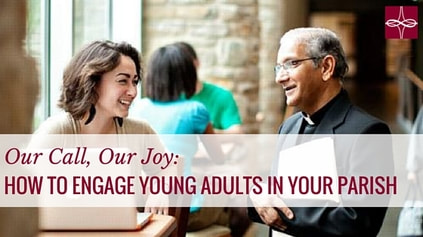

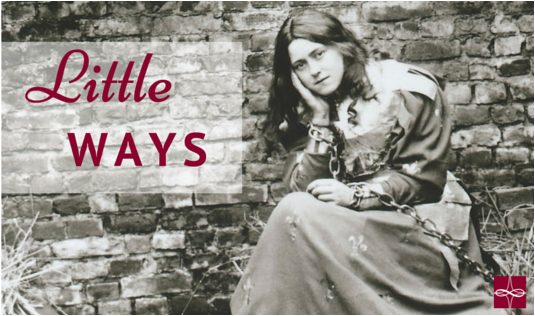

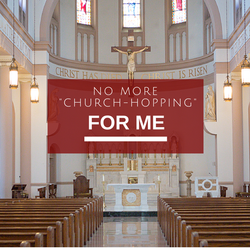
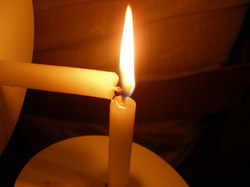
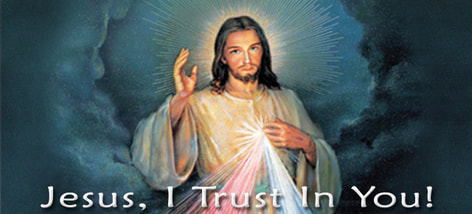
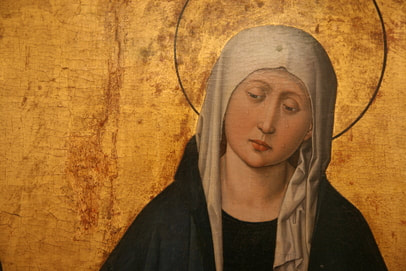

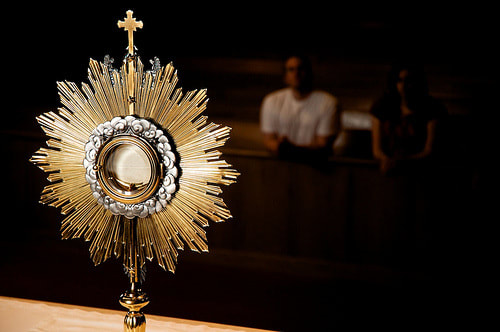
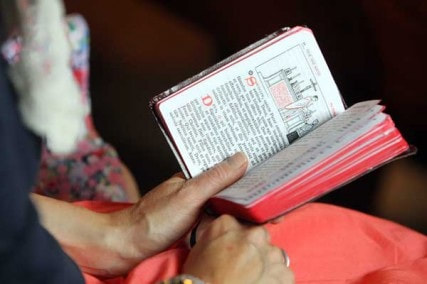




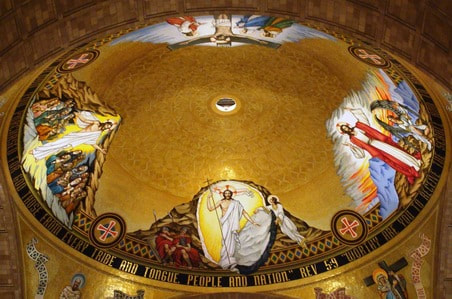
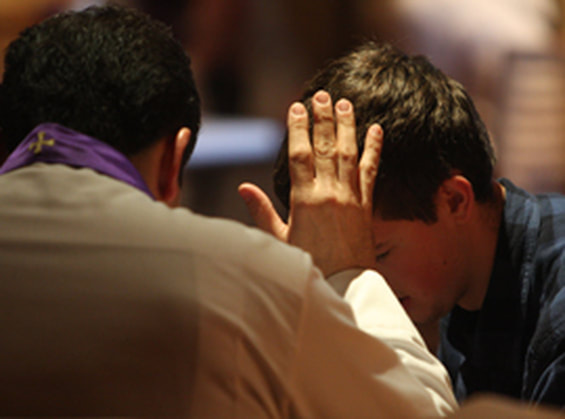


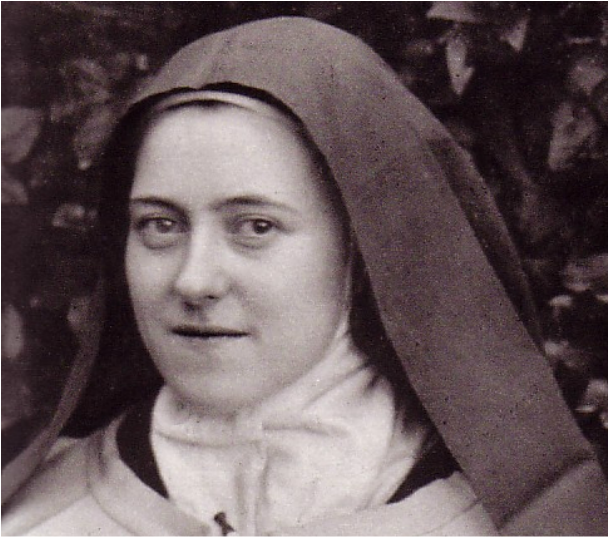
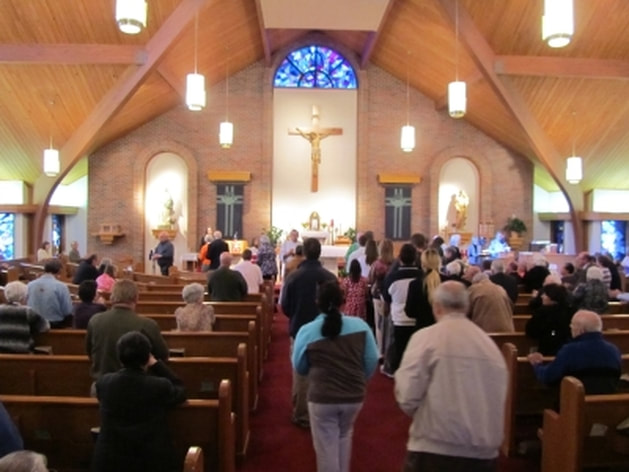
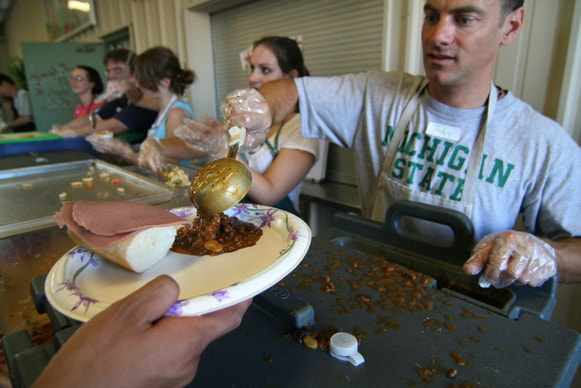
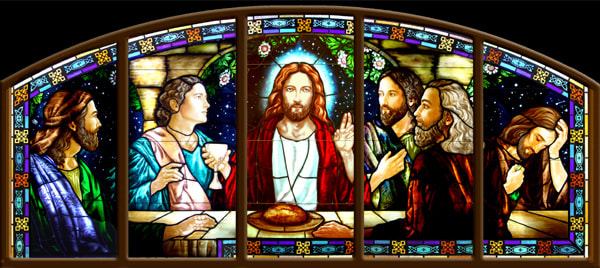
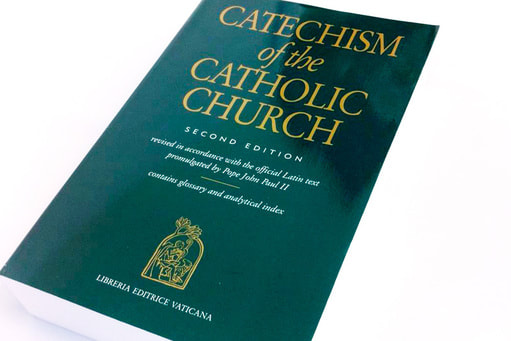
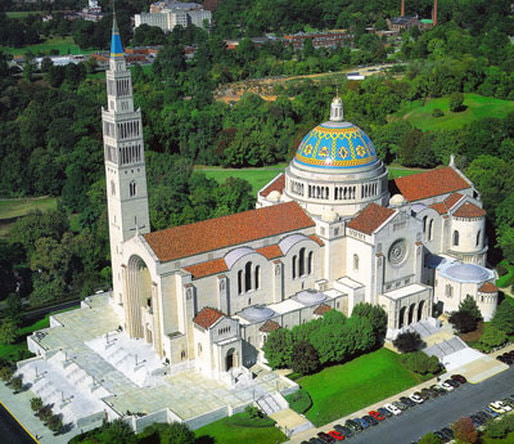
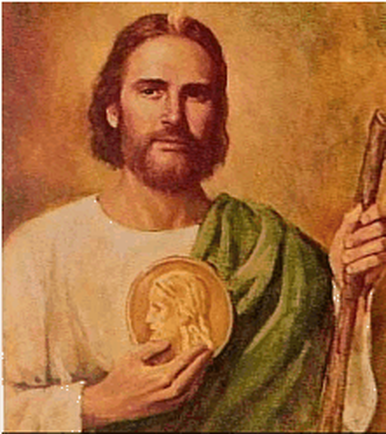
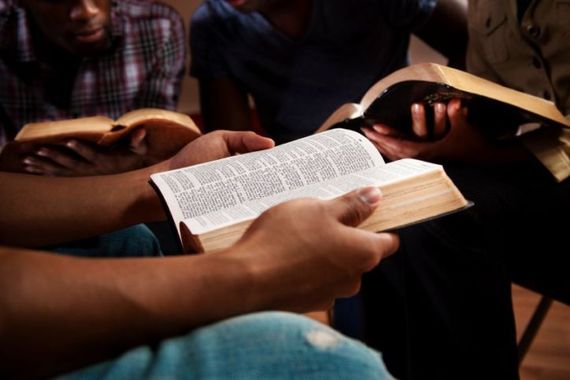
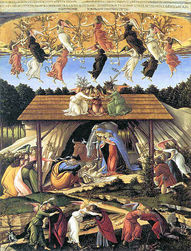

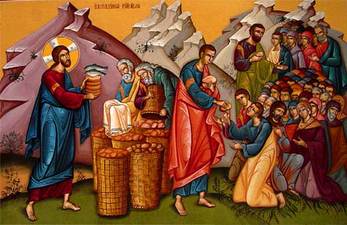
 RSS Feed
RSS Feed